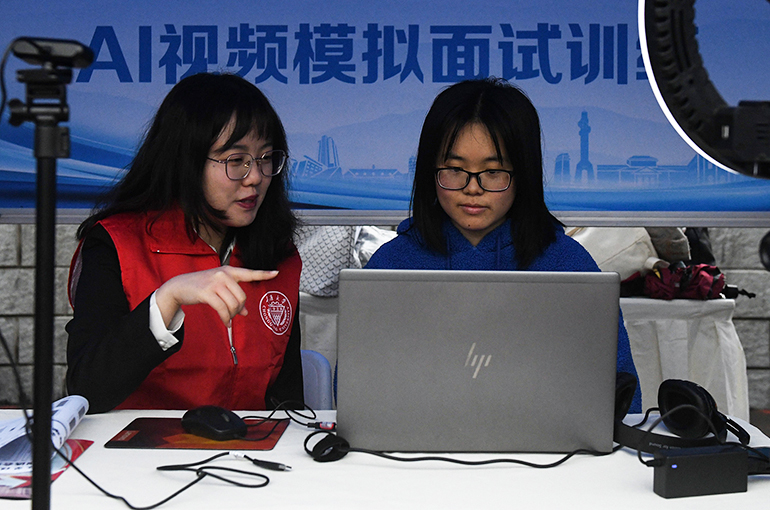 AI Comes to Chinese HR Departments as Graduates Look for Work, Report Says
AI Comes to Chinese HR Departments as Graduates Look for Work, Report Says(Yicai) Oct. 27 -- Artificial intelligence is making its way into job interviews in China as new graduates applying for work have to deal with increasingly high-tech and mentally challenging recruitment procedures, 21st Century Business Herald reported.
AI interviews that use progressively mature algorithms and machine learning technologies will play a big role in making decisions about whom to hire, and AI will also become a major trend in the digital transformation of companies, 21st Century Business Herald reported, citing Yang Hao, the human resources manager at a large power firm which is not yet using AI in interviews.
The number of fresh graduates nationwide reached a new high of 11.6 million this year. Many large jobs fairs have taken place recently, with recruitment in the fields of new energy, medicine, and the internet picking up significantly, the report said.
Candidates can find the new vetting techniques confusing. Xu Lin, who will graduate with a master's degree next year, said AI interviews require a quiet and open environment, and both psychological tests and AI interviews are time-consuming, according to the report.
Another graduate named Li Si said that an increasing number of internet and new media firms use new recruitment technologies. “Applicants need to adapt to new hiring methods, but one can cheat in psychological tests and AI interviews are not very effective,” the report quoted her as saying.
Zhaopin, a recruitment platform, launched a mini-program called 'simulated interview room' for job seekers at the end of last year, opening it to universities, regional governments, and businesses in March. As of June, the mini-program had logged nearly 150,000 visits per month with the total number of finished tests exceeding 20,000.
Besides automated testing, psychological assessment is getting more comprehensive, the report said. This year, an electric power company in Yunnan province conducted psychological tests to evaluate candidates in three areas: personality, professional behavior regarding risk and development, and career interests.
The power company’s HR director said it is interested in the mental health of candidates and new technologies can improve recruitment efficiency by excluding those who do not meet the requirements, according to the report.
Editor: Emmi Laine